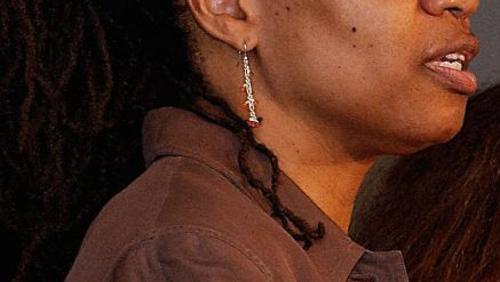All News
-
Civil rights activist Diane Nash spoke to the Hamilton community about her experience as a civil rights leader in the South, the nature and strength of nonviolent protest, and the current political sphere in a lecture on Feb. 27. She broadly covered recollections of fear, violence, cooperation, and success during her early days of activism and leadership.
Topic -
Going “against the grain” can be painful and cause splinters, but as speakers at Hamilton’s TEdX talks advised, there is often good reason to endure that pain. The four speakers at the Feb. 11 event spoke to different reasons to move “against the grain.”
Topic -
On Feb. 3rd to 5th Hamilton Mock Trial competed in the Regional American Mock Trial Association (AMTA) tournament at Pennsylvania State University. This was the first of three AMTA elimination tournaments that aim to bring together the best teams from all around the country. Hamilton placed third out of 24 teams, earning it a spot to the next AMTA tournament, Opening Round Championship Series (ORCS) in Lancaster, Pa., March 17-19.
Topic -
For the past six years a group of students has returned from winter break early to converge on the otherwise vacant Kirner-Johnson academic building. One group of 28 comes with the hopes of learning how to recognize, develop and practice the kinds of leadership skills that are essential to create personal and societal change. These are students participating in the Levitt Leadership Institute (LLI).
Topic -
As the semester winds down, students face their second major election of the year: Student Assembly (SA) president and vice president. All SA positions entail a significant time commitment, but the roles of president and vice president are arguably the most time-intensive, since the students in these roles meet regularly with important administrators and authority figures on campus.
Topic -
When most students left campus for the holidays on Nov. 18, Hamilton’s Mock Trial teams suited up for a tournament at Cornell University (Nov 19-20). Among the competition were teams from some of the best mock trial programs in the Northeast region including the Ohio State University, Pennsylvania State University, Columbia University, and Rutgers University.
Topic -
Few would argue with the assertion that racism unfortunately persists in America. However, some do contest the prevalence of racism in the criminal justice system. Syracuse University Law School Professor Paula Johnson shed some light on the issue in a lecture on Nov. 10. She explained that we see and experience racism not only when police officers use excessive and unjustified force against black individuals, but we see it also in the lack of accountability for these assaults and killings. Johnson traces this pattern of ignoring racist killings to the death of Emmett Till in 1955, whose killers were acquitted of all charges.
Topic -
While many students spent the Halloween weekend dressing up in costumes, Hamilton’s Mock Trial team spent the weekend in suits at the University of Rochester’s 9th annual “Yellowjacket Invitational.” Hamilton’s team has won this tournament for the past three years, and continued the streak this weekend. Hamilton’s two teams swept away the competition yet again, placing first and second at the tournament.
Topic -
At Haverford College’s “Black Squirrel Invitational,” on Oct. 22-23, Hamilton Mock Trial celebrated a number of firsts: the first tournament of the year, the first competition for new members (Bryce Murdick ’20, and Michael Wang ’19), and the first tournament where Hamilton’s Mock Trial program competed with two teams.
Topic -
Robert Jensen, professor of economics and public policy at the Wharton School of the University of Pennsylvania, gave a Levitt Center- sponsored talk on April 21 about the gender bias in developing countries. In particular, he focused on the economic and cultural implications of preferences toward male children in India.
Topic









